Republicans control the House and Senate.
But characterizing it as the "Republican Congress" doesn’t do justice to the present circumstances.
This truly is "President Trump’s Congress."
The president’s relationship with Republican lawmakers is light-years away from the fraught, shotgun marriage of 2017 after he unexpectedly captured the White House. Republicans on Capitol Hill didn’t know what to do with him.
USER'S MANUAL TO WALTZ'S NSA EXIT AND ITS REVERBERATION ON CAPITOL HILL
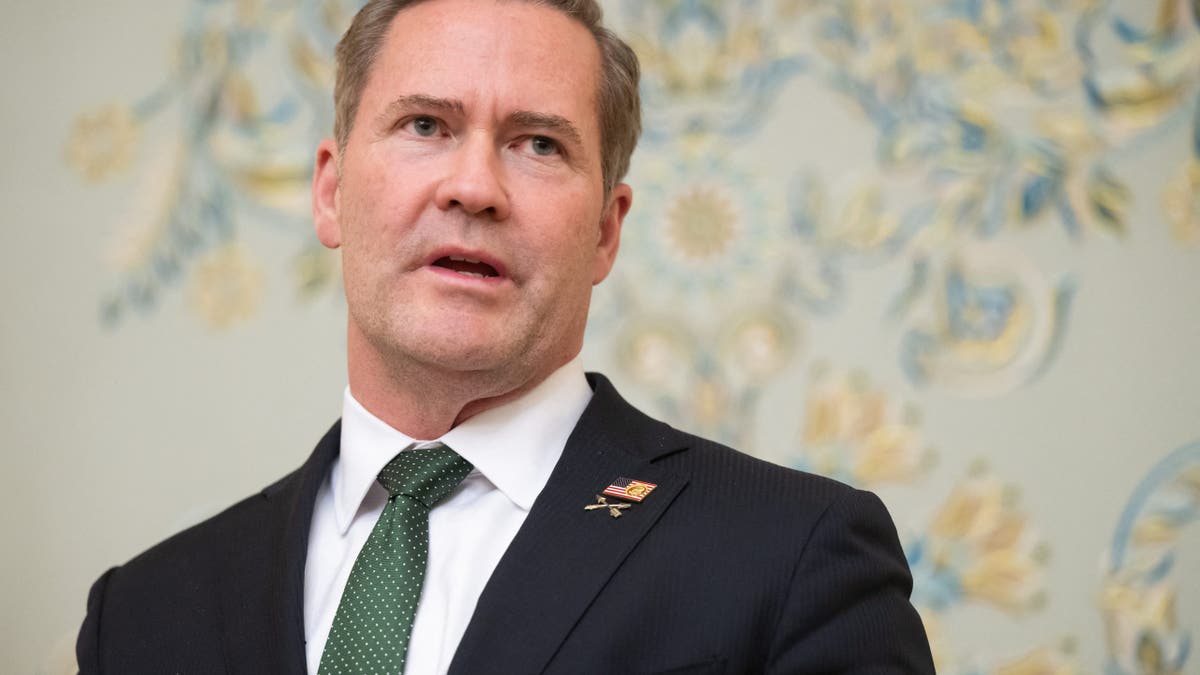
Former national security advisor Mike Waltz (Saul Loeb/Pool/AFP via Getty Images)
Congressional Republicans "didn’t read the tweets." They snickered behind his back. They chortled at what they believed were untenable ideas emanating from the White House.
And Trump also didn’t know what to do with congressional Republicans, either.
He and then-House Speaker Paul Ryan, R-Wis., formed the Odd Couple of politics.
But Trump’s relationship with then-Senate Majority Leader Mitch McConnell, R-Ky., was even worse.
So they focused on areas of agreement. Congressional Republicans viewed the Trump presidency as a means to an end. They saw an opportunity to pass some of their legislative priorities.
REPORTER'S NOTEBOOK: WHERE WE STAND WITH TRUMP'S ‘BIG, BEAUTIFUL BILL’
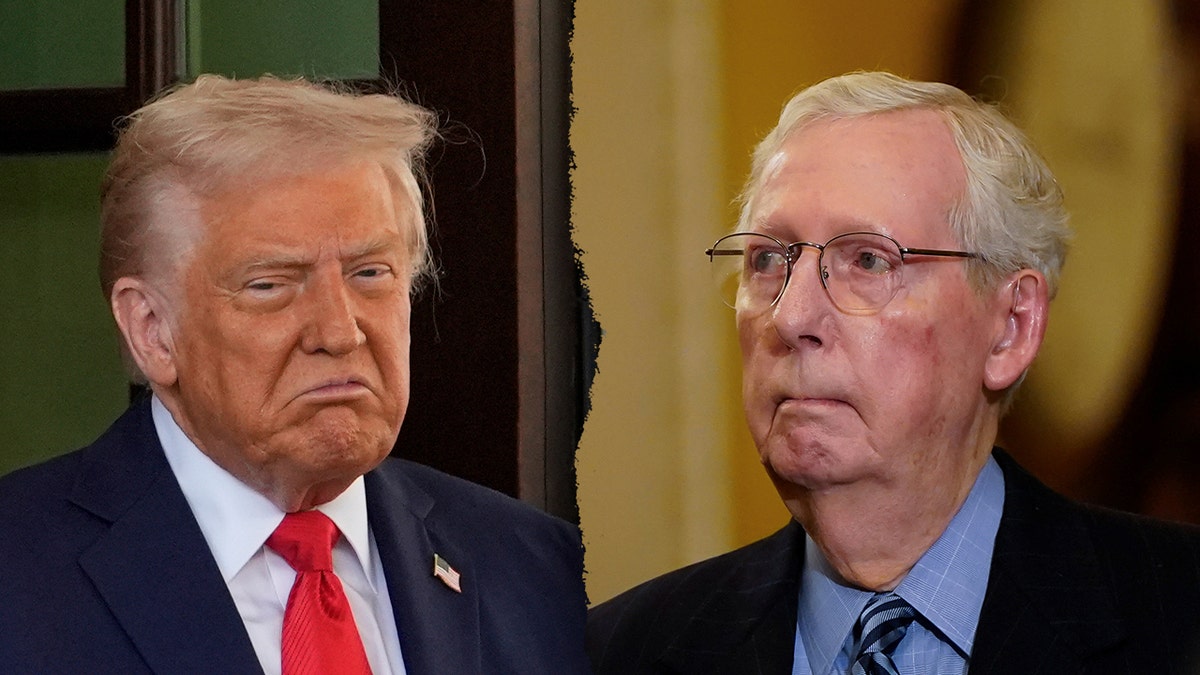
President Donald Trump and outgoing Sen. Mitch McConnell have a contentious relationship. (AP Photo; Reuters)
McConnell muscled three of President Trump’s Supreme Court nominees to confirmation, altering the contours of the high court for a generation. Ryan bored deeply into his area of expertise: tax policy. By Christmas 2017, the Republican-led Congress approved the vaunted "Trump tax cuts."
But they stumbled early on repealing and replacing ObamaCare.
"I will not sugarcoat this. This is a disappointing day for us," said Ryan when he had to yank an initial plan to end ObamaCare off the floor in the spring of 2017.
The House finally approved a revamped repeal and replace package more than a month later. But the late Sen. John McCain, R-Ariz., torpedoed the effort with his vote against the plan later that summer.
But things are different this time around between Trump and congressional Republicans.
"He’s still the biggest dog in the pound," said Rep. Tim Burchett, R-Tenn.
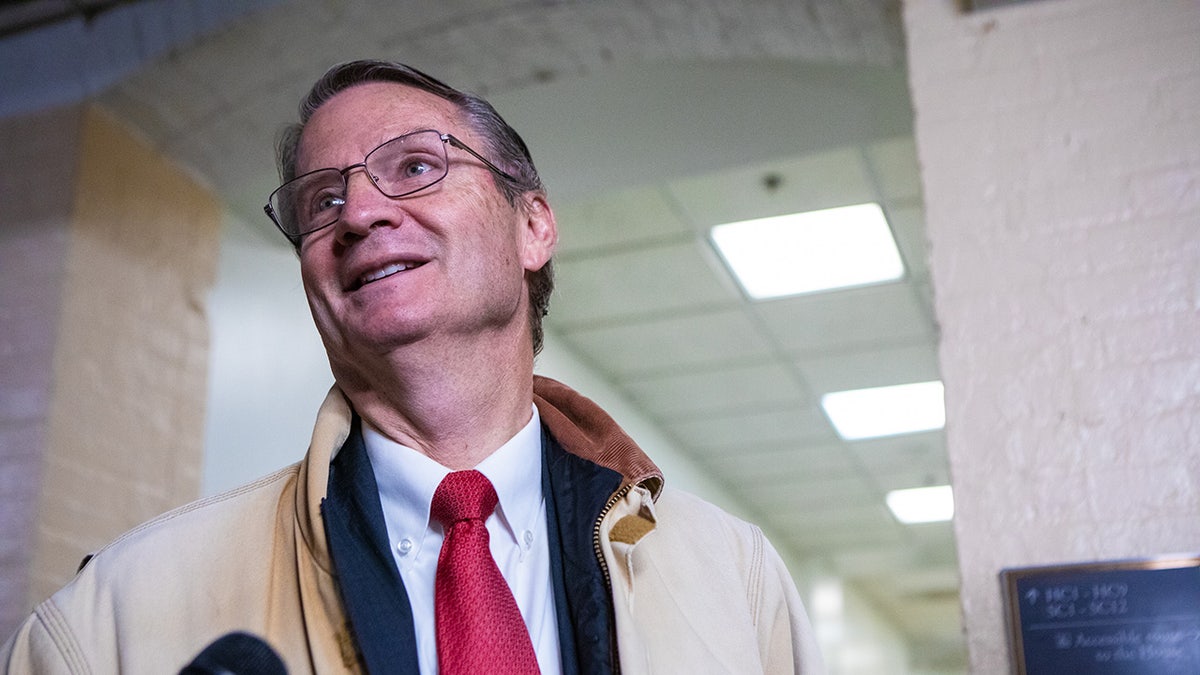
Rep. Tim Burchett speaks to reporters upon arrival at a House Republican Conference meeting on Nov. 14, 2023, in Washington. (Anna Rose Layden/Getty Images)
So now congressional Republicans are teaming with the president to pass his "big, beautiful bill."
"We are on track to pass the bill out of the House – as we've said from the very beginning – and get it over to the next stage by Memorial Day," said House Speaker Mike Johnson, R-La.
But that doesn’t mean there isn’t GOP skepticism.
"Seems like that's a pretty tight timeframe," said Sen. Thom Tillis, R-N.C., of Johnson’s aspirations. "I'm not aware of any consensus, even within one of the bodies. Let alone a bicameral consensus."
"A July 4 timeframe will be optimistic," said Sen. James Lankford, R-Okla. "If we can get this done by the end of July, I would count that as a win."
But deep divides cleave Republicans.
TRUMP NOMINATES WALTZ FOR HIGH-LEVEL POST AFTER OUSTING HIM AS NATIONAL SECURITY ADVISOR
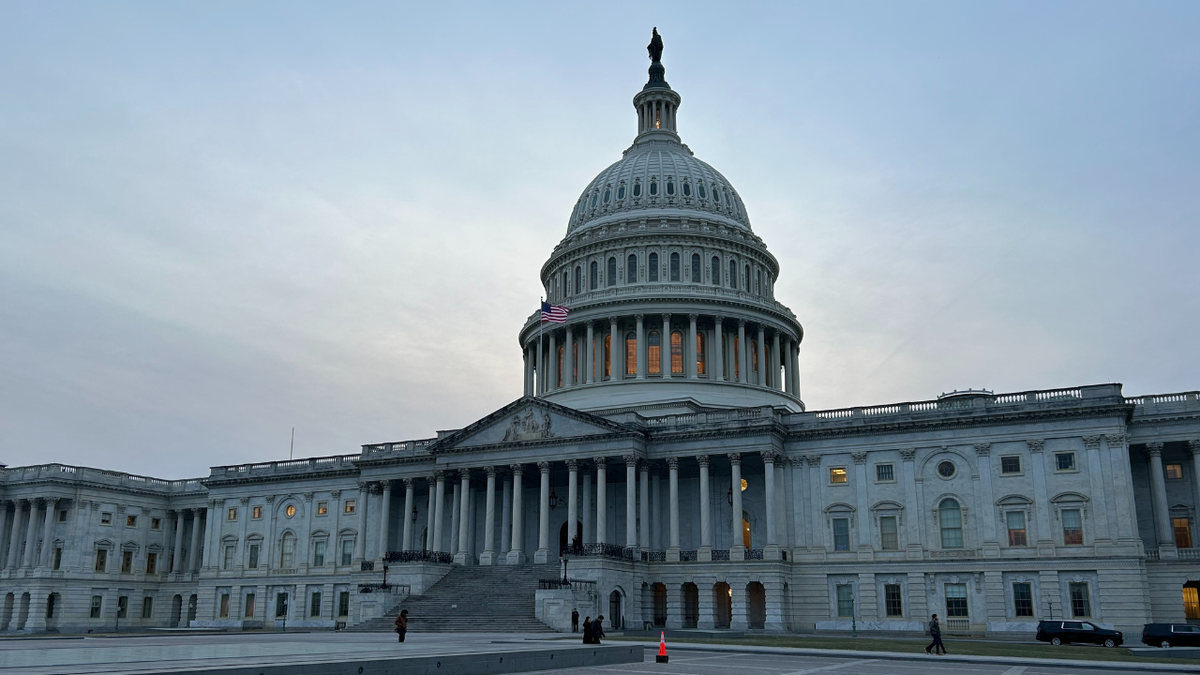
U.S. Capitol at sunset on Jan. 30, 2025. (Fox News Digital)
"I don't think we're on the same page even inside the House, much less in the House and the Senate," said Rep. Chip Roy, R-Texas.
Roy questioned what was so magical about finishing the bill by "Memorial Day" or "Independence Day."
"Christmas? Easter? Memorial Day? July 4th? Does that have anything to do with policy? Hell no. It has to do with what? Jet fumes! People leaving town, right?" argued Roy. "Every single policy, as long as I can remember, is based on that more than it is on policy."
But some Republicans aren’t convinced Congress is moving fast enough.
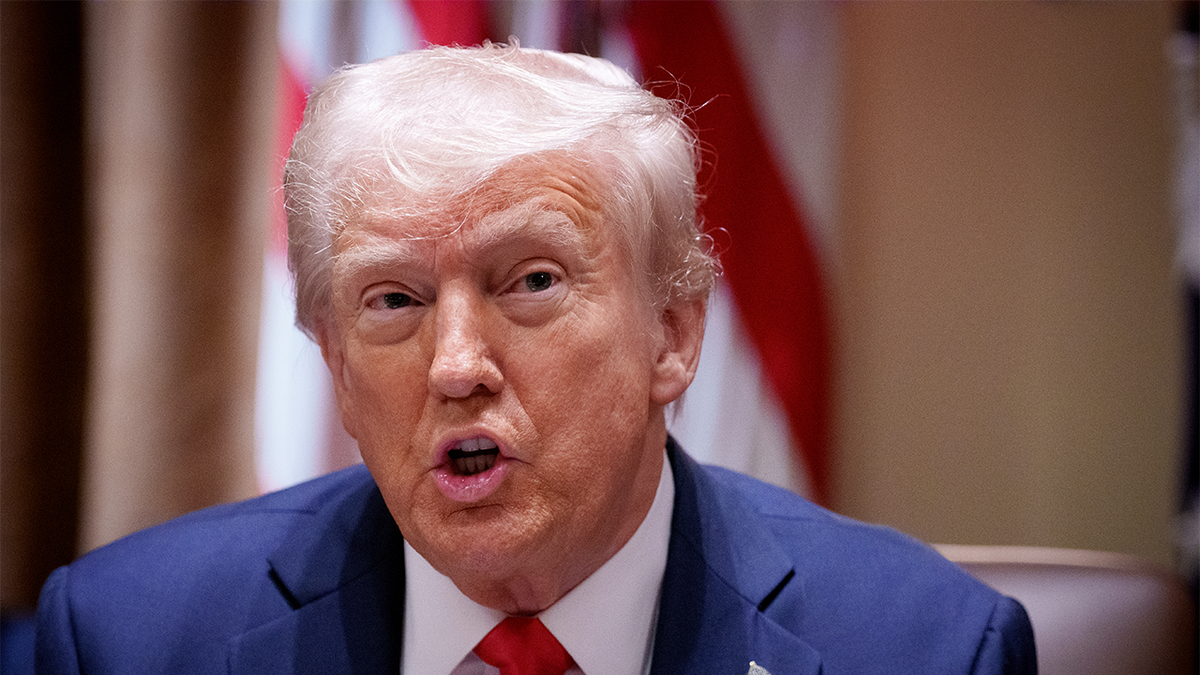
President Donald Trump speaks during a Cabinet meeting at the White House on Feb. 26, 2025. (Andrew Harnik/Getty Images)
Rep. Warren Davidson, R-Ohio, relayed what he heard from constituents in Ohio.
"People were like, "What's taking so long?’ They don't think it's rushed by any means. They're like, ‘Where's the bill?’" said Davidson. "If we don’t get this by mid-June, I think people back home are going to go ‘What are you guys doing?’"
This is why Democrats say Republicans are fretting privately.
"They’re clearly conflicted about Medicaid cuts," said Sen. Tim Kaine, D-Va. "They're conflicted about raising the debt ceiling just with Republican votes. They've traditionally wanted to get Democratic votes for that and not do it all on their own. But if they do it in the reconciliation bill, they're going to have to do it all on their own."
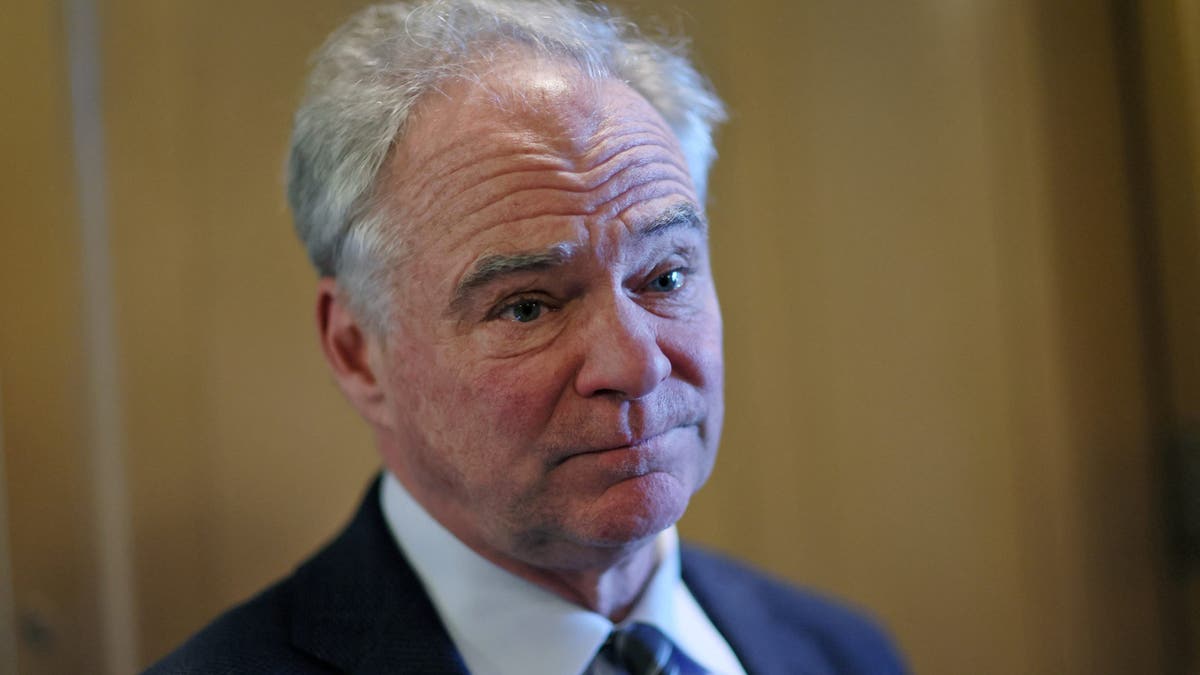
And Republicans are starting to get nervous about the success or failure of the bill. The president – and most congressional Republicans – have banked their entire political calculus on this gambit.
"It's a job for alcohol. Not coffee," said Sen. John Kennedy, R-La., noting the anxiety now permeating congressional Republicans. "Some of them would make a Valium nervous."
Kennedy contends he’s not worrying. But says that even after another two months of hand-wringing, the Senate "won’t reach consensus. Nor will the House."
But who will forge common ground?
"The president is going to have to be the arbiter because he's going to put his muscle behind this to sell it," observed Kennedy.
The sides are much more in sync. But this bill is such a behemoth that 53 Senate Republicans and 220 House GOPers won’t be able to sort this out on their own. They will look to the president to solve this.
"What do you think is the difference between Republicans and how they responded to President Trump during his first term? And what you see now?" yours truly asked Senate Minority Leader Chuck Schumer, D-N.Y.
"I think they are much more afraid of him now. He's done much more in terms of threatening them in both privately and even publicly," replied Schumer. "They don't know what to do. They’re between a rock and a hard place. On the one side, Trump threatens. On the other side, there are the American people who hate what Trump is proposing."
I posed a similar interrogative to Senate Majority Leader John Thune, R-S.D.
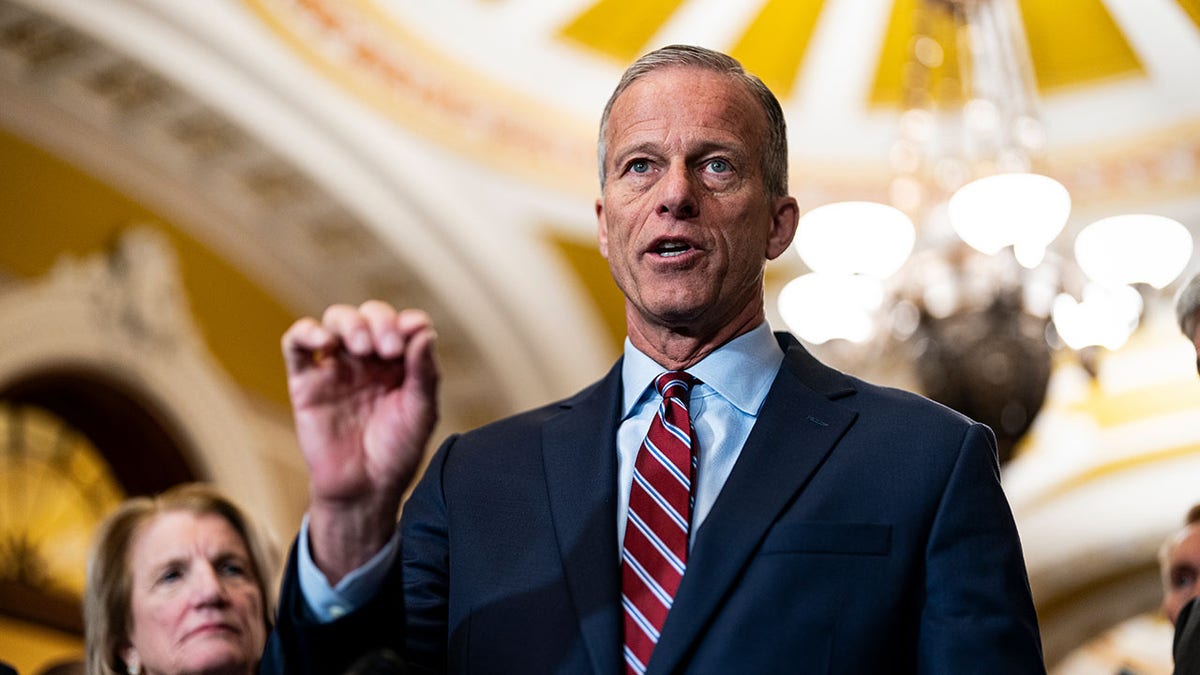
Senate Majority Leader John Thune (Al Drago/Bloomberg via Getty Images)
"Can you characterize the difference in the response from congressional Republicans to President Trump this time around, compared to 2017? They seemed a little skeptical of him in 2017. That's not the case now," I observed.
"We all watched what happened in November and the mandate he got from the American people. It was clear. It was decisive," said Thune. "A lot of us who served with him in the last term also saw the effects and the results of a lot of the decisions that he made with respect to policy. And they were the right ones. And in the end, he was proven right when it came to the economy, the border and national security."
The point is that Trump enjoys a very different Congress compared to the one he tangled with in 2017. It’s Trump’s Congress now. GOPers will generally do what he asks. But when it comes to the tax cut and spending package, Trump must ultimately make the decisions on specific items he wants in the legislation. The question is whether the president will eventually rule things in or out. Trump’s Congress will respond to that.
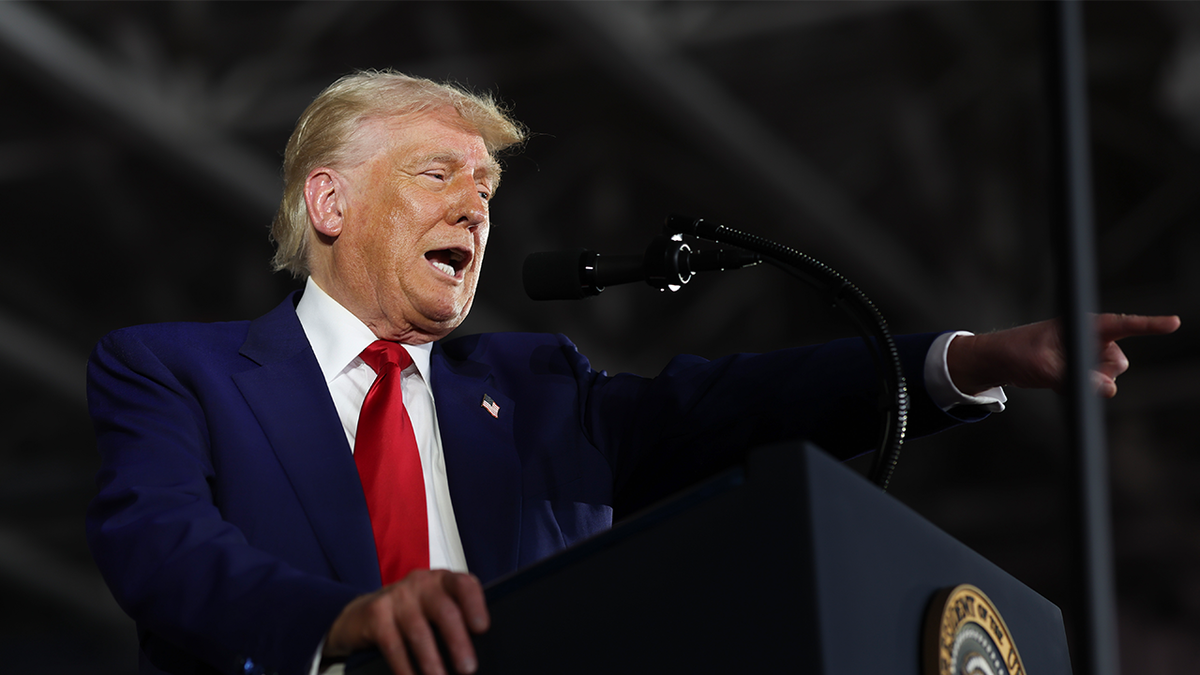
President Donald Trump delivers remarks at his Michigan rally commemorating the first 100 days of his second term. (Getty Images)
"He has been clear to all of the members that this is critical for him. He wants his one big, beautiful bill," said House Republican Conference Chairwoman Lisa McClain, R-Mich., on Fox. "I wouldn't want be the one that stands in the way of the president on his agenda."
But this won’t be easy. Expect a challenging few months.
Kennedy may be right. This is one for alcohol. Not coffee. Grab a dram of the Glenlivet and Lagavulin. Shelve the Starbucks and Nescafe.
CLICK HERE TO GET THE FOX NEWS APP
That is, unless the tariffs spiked the price of liquor and coffee too much.
If that’s the case, just drink water.
Chad Pergram currently serves as a senior congressional correspondent for FOX News Channel (FNC). He joined the network in September 2007 and is based out of Washington, D.C.
.png)
 German (DE)
German (DE)  English (US)
English (US)  Spanish (ES)
Spanish (ES)  French (FR)
French (FR)  Hindi (IN)
Hindi (IN)  Italian (IT)
Italian (IT)  Russian (RU)
Russian (RU)  2 hours ago
1
2 hours ago
1

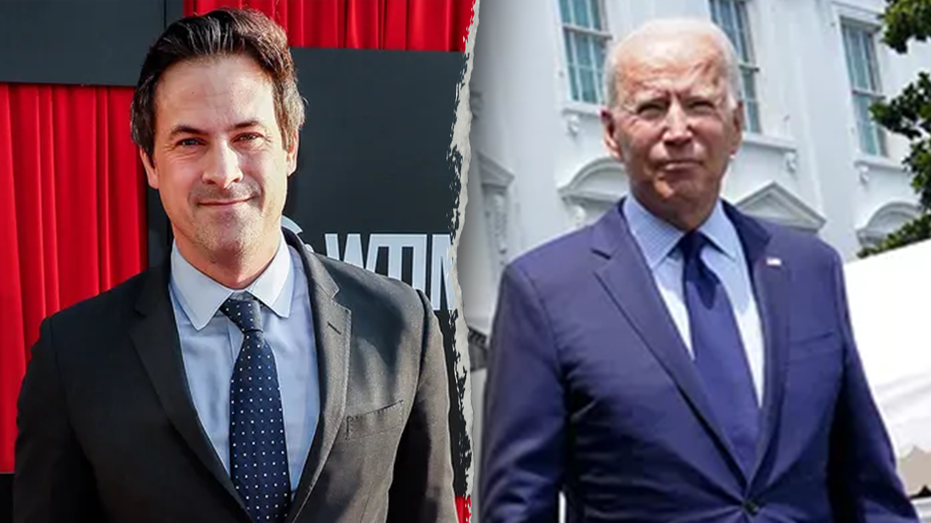







Comments